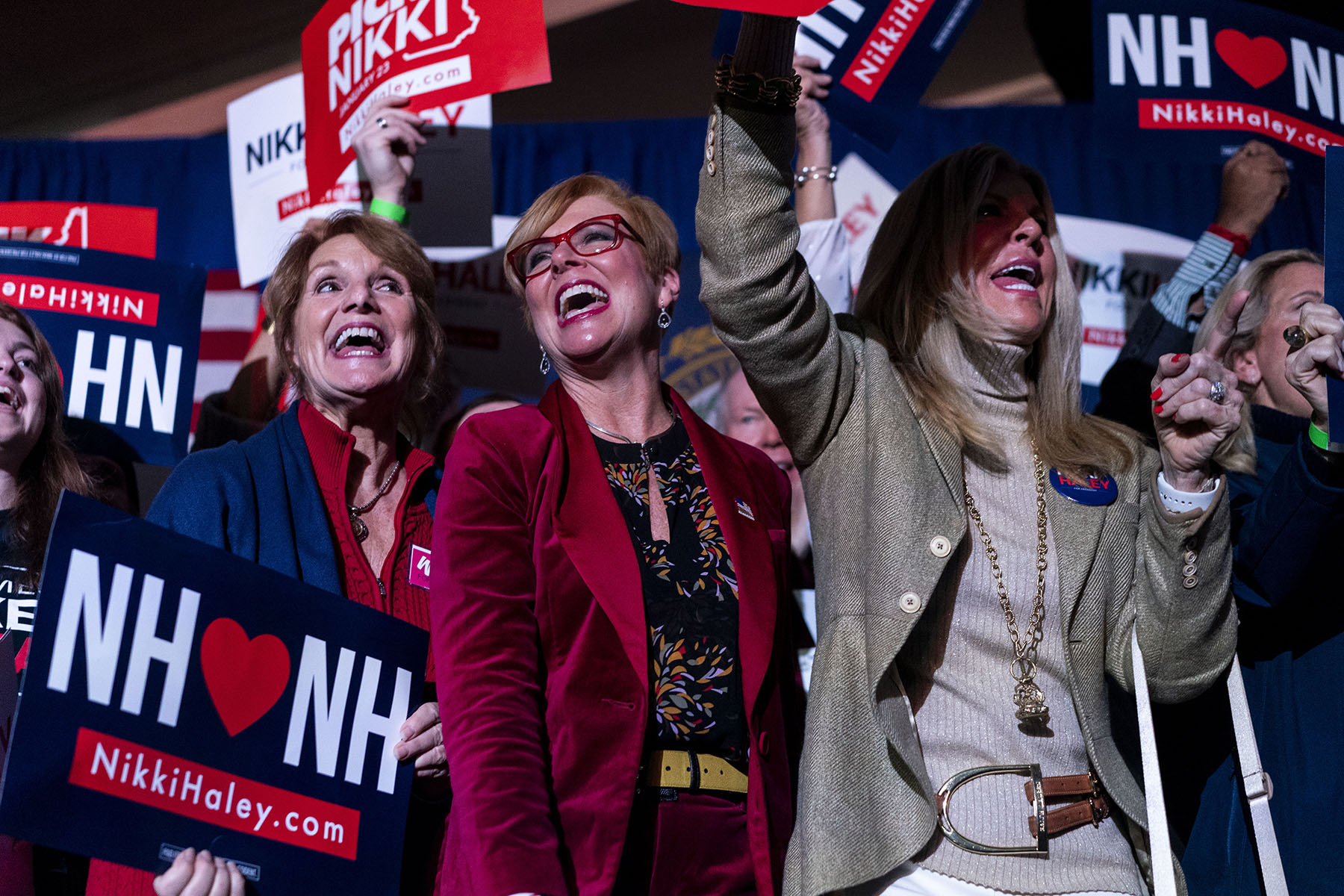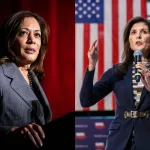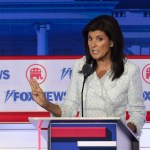This column first appeared in our weekly newsletter, This Week at The 19th. Sign up for our dispatch on the biggest news of the week — including a regular column from a 19th staff member.
When Nikki Haley launched her campaign for president just over a year ago, the political world swirled with questions. For us here at The 19th, some of the most pressing were about how her gender and race would shape her campaign, and what kinds of voters would rally behind her.
Some things were immediately clear, including that Haley would only wink-and-nod at the historic potential her campaign held for Republican women, and that she would talk about her womanhood and motherhood to help moderate her anti-abortion position and to defend policies that would restrict the inclusion of trans girls in youth sports.
Other things took some time: While Haley has long talked about being the “proud daughter of Indian immigrants,” by the end of the race, I more often heard her say she was the “proud daughter of legal immigrants,” bending to a party that is making the influx of undocumented immigrants a core campaign issue.
As for the voters that Haley drew, her coalitions didn’t include a majority of Republican women — a segment of the party that has been reshaped by the fleeing of college-educated women to the Democratic party. Still, it was hard to ignore the women whodid back Haley, and who came to make up some of her most enthusiastic supporters. Haley dedicated the final words in her last speech as a candidate to the “women and girls out there who put their faith in our campaign.”
That included the Women for Nikki group, which campaigned for her with friendship bracelets, empowerment songs and excitement about her potential as the first woman president. At Haley events in New Hampshire, South Carolina and Virginia, I met many women who brought their young daughters along. Haley’s gender wasn’t driving their support for her, but it was part of the package.
Now that Haley is out of the race, more than half a million voters spread out across three battleground states are technically up for grabs. In an election that will be decided at the margins, it’s a group worth paying attention to.
“What is driving your support for Nikki Haley?” was often my first question. I can’t overstate how many of the answers started not with her views on foreign policy or her hard line on the southern border — two popular issues for Republican voters — but with character traits.
In an election that will be shaped by voters’ weariness and skepticism, I found voters who were driven by thoughts like this one from Jennifer Spence, 37, in Virginia: “She’s honest.”
Many of the women I spoke to on the campaign trail cited Haley’s views on reproductive rights as something that was giving them pause or turning them off Haley. One voter I spoke to in New Hampshire said she wasn’t clear on what Haley’s position actually was, which makes sense.
Haley talked a lot about understanding for women making very personal decisions, but also said she supported some abortion restrictions, and never outright stated what she would champion as president.
Haley’s events gave me a close look at the kind of political fatigue many Americans are struggling with, and that may come to define the election. I ended almost all of my interviews by asking, “If the presidential election comes down to Trump or Biden, have you decided what you will do?” I fielded many, many groans. There were a few solemn, “I just don’t know.” And there were many, “I can’t vote for Trump.”







